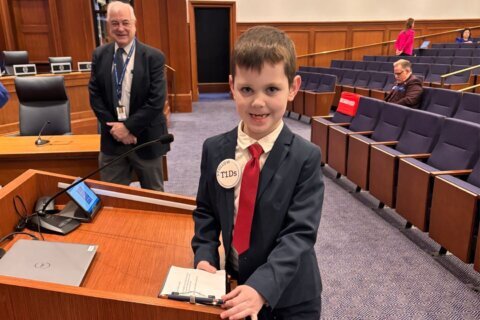Low-income students in Virginia will soon be getting financial help with all the costs of getting an education.
Gov. Ralph Northam on Monday signed into law the “Get Skilled, Get a Job, Give Back” program, which will provide full tuition for community college for low-income students in certain majors, as well as incidental expenses such as food and transportation.
The bill, which passed the legislature overwhelmingly last month, budgets $36 million a year over the next two years.
The bill covers education that leads to in-demand jobs in fields such as technology, skilled labor and health care. Officials gathered at Northern Virginia Community College for the signing Monday said the bill would open doors to people who were considering higher education.
“I am so incredibly proud of this initiative,” said House Speaker Eileen Filler-Corn. “This has been something that we’ve been working on for a number of years.” She said there was a lot of bipartisan support for the bill even before COVID-19, but with a lot of lower-skill jobs disappearing because of the pandemic, “It’s more important now than ever.”
”In Northern Virginia, the impact is going to be incredible,” said Dr. Anne M. Kress, president of Northern Virginia Community College. She estimated that more than 8,000 current NOVA students would qualify, and that’s not “even counting the students are sitting on the sidelines because they don’t have this economic opportunity.”
She said the help with what’s known as “wraparound expenses” is key: “Our students even before the pandemic struggled with just covering basic needs,” Kress said, adding that half of the students who responded to a survey from the college said they needed help with food transportation or child care.
“All of those students who have not even thought that they could be college students now see that pathway.”
For his part, Northam said the bill is an example of “what keeps Virginia business-friendly, and allows businesses to grow. It also attracts new businesses to the Commonwealth.”
The program could be expanded, Northam said, and it would eventually pay for itself. “When we look at the data, individuals that have skills, that can go into high-demand jobs, they get the [higher] salaries. And so obviously, when there’s higher salaries, that adds to our tax base.”
WTOP’s Luke Lukert contributed to this report.








